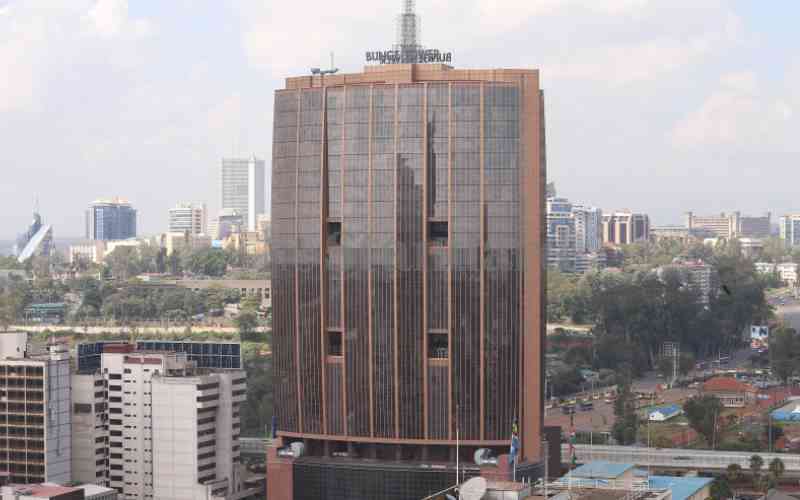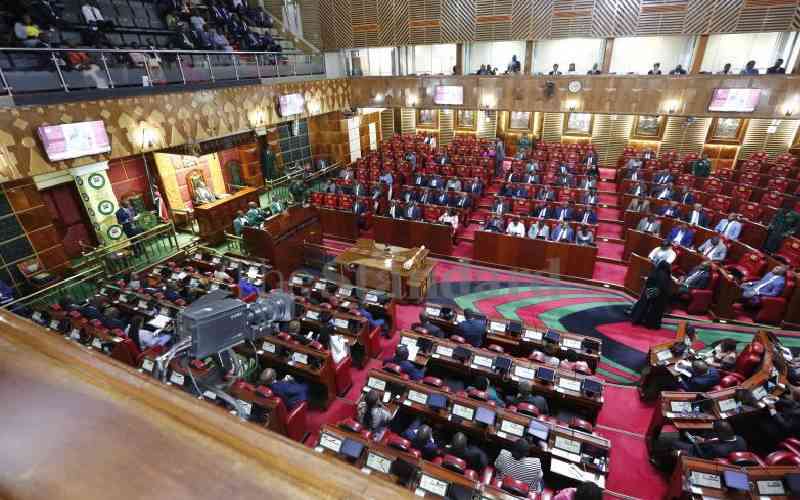By NJIRAINI MUCHIRA
The Kenya Revenue Authority (KRA) has defended the VAT Bill 2012, saying its passing is key to economic growth.
Last month, Finance Minister Robinson Githae tabled the Bill in Parliament, which among other things, seeks to transform most zero-rated agricultural and food items to standard rated by attracting a VAT of 16 per cent.
If passed into law, the Bill would affect several items including fertilisers, livestock feeds, insecticides and pesticides, bread, maize, wheat, milk, cream, seeds, water pumps, and gin cotton.
MPs fury
The Bill has elicited furious debate with a cross-section of Kenyans including MPs, farmers and lobby groups terming the move ill advised and a direct threat to food security. MPs have since called on Treasury to shelve the provisions that are likely to set off increase in commodity prices.
But speaking yesterday in Nairobi at a workshop on VAT Bill 2012, KRA Commissioner-General John Njiraini said the Bill is core to reforms needed to grow the economy in line with Vision 2030 economic blueprint. “Kenyans must be willing to make short-term sacrifices for long term benefits by abolishing VAT exemption, zero rating and granting remissions that are benefiting even the rich who do not deserve,” Njiraini told a workshop organised by Institute of Certified Public Accountants of Kenya.
“Instead of using tax incentives to cushion the poor from the high cost of living, the Government should introduce subsidies targeting specifically the deserving,” he said.
Njiraini cautioned MPs against mutilating the Bill to allow the taxman expand the tax bracket and capture more people including the poor.
“It is our position that exemptions should be limited and should expire within a specific timeframe,” Njiraini said, adding that imposing tax on consumption would rope in more Kenyans from the informal sector as KRA seeks to broaden its tax base.
“Any move meant to broaden the tax base is in the long term good of society because then everyone pays to finance public service based on their means,” he said. While conceding that VAT on commodities and farm inputs would increase the cost of living, he called on Government to instead introduce subsidies for the poor.
“For instance, the government should introduce a textbooks subsidy programme for public schools instead of zero rating and benefiting even the rich. The same can been done for fertiliser and other goods,” Njiraini said.
Njiraini said the intentions of the VAT Bill 2012, which has since been temporarily shelved, is to simplify the VAT administration and address the perennial problem of refunds.
VAT contribution to total tax revenues steadily climbed in the 1990s and peaked at 30 per cent between 2000 and 2003. It has since declined to 27 per cent in the 2011/2012 financial year.
Stay informed. Subscribe to our newsletter
 The Standard Group Plc is a
multi-media organization with investments in media platforms spanning newspaper
print operations, television, radio broadcasting, digital and online services. The
Standard Group is recognized as a leading multi-media house in Kenya with a key
influence in matters of national and international interest.
The Standard Group Plc is a
multi-media organization with investments in media platforms spanning newspaper
print operations, television, radio broadcasting, digital and online services. The
Standard Group is recognized as a leading multi-media house in Kenya with a key
influence in matters of national and international interest.
 The Standard Group Plc is a
multi-media organization with investments in media platforms spanning newspaper
print operations, television, radio broadcasting, digital and online services. The
Standard Group is recognized as a leading multi-media house in Kenya with a key
influence in matters of national and international interest.
The Standard Group Plc is a
multi-media organization with investments in media platforms spanning newspaper
print operations, television, radio broadcasting, digital and online services. The
Standard Group is recognized as a leading multi-media house in Kenya with a key
influence in matters of national and international interest.








